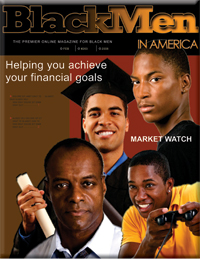By David Miller
I have vivid childhood memories of learning about life in Africa by reading National Geographic. As I’d leaf through the magazine seeing pictures of beautiful people, an amazing landscape and wild animals roaming the plains, I got a chance to learn about my ancestral homeland while escaping the harsh realities of urban life in the 70s and 80s.
Some 30 years later, in what can best be described as the trip-of-my-lifetime, I was blessed with a chance to visit the Africa I’d known only from National Geographic pages as well as TV and newspaper accounts. In September, I joined a small cohort of writers and professionals on a mission to sow seeds in the lives of children and families in the Eastern Region of Ghana. A West African nation most known for its first President, Kwame Nkrumah, Ghana borders Cote d’Ivoire (The Ivory Coast) to the west, Burkina Faso to the north, Togo to the east and The Gulf of Guinea o the south. Its population exceeds 24 million.
I was in The Motherland to participate in LEAP for Ghana, a multi-phase educational sustainability project founded by Virginia-based poet and writer Kwame Alexander. My group worked primarily with Juanita Britton of Washington, D.C., who has been installed as Queen Mother Nana Botwe Adobe II of the Konko Village. Our work included literacy training for teachers, literacy activities for children in kindergarten through eighth grades, donating school supplies and organizing and running a girl’s leadership conference.
Suffice it to say our work in Ghana was simultaneously difficult and rewarding. Most importantly to me, it shed light on just how much Africans need the skills, innovation and resources of African-Americans. Our comrades in Ghana are resilient, smart and possess a tremendous work ethic; however, the country as a whole struggles with condensed poverty, inadequate infrastructure and a dearth of resources. In Ghana, we worked daily with about 200 children ages 3 to 14. We engaged them in story time, mostly with the younger children, and worked on writing poetry and short stories with the older children. The challenges I witnessed firsthand in Ghana mirror, in some respects, the challenges plaguing many urban centers in the United States. The difference however, as I see it, is in Ghana there is an unyielding sense of personal responsibility to rise above dismal circumstances, including poverty and scarce educational resources. In Ghana, the children are eager to learn and want to be in school. Here in the U.S., particularly in urban areas, many U.S. children are chomping at the bit to reach 16 so they can drop out of high school, though they have absolutely no clue what they’ll do and sadly fail to realize there’s just no way they’ll make it in today’s global society without education.
The illiteracy rate in Ghana is 60 percent, and most children, especially females, don’t get past the ninth grade. Needless to say, Ghana, like many African countries, is experiencing enormous academic challenges. In the village of Konko, where most of our work was focused, not one student had reached high school in the past 10 years – attributable, in part, to students’ inability to pass a comprehensive examination and to cover annual tuition costs.
I was amazed by the high level of resiliency among Ghana’s school children, despite the numerous challenges they faced. I witnessed a thirst for education and knowledge that I reluctantly admit I have not seen, consistently, in school children in the Western World. It was refreshing to see children, particularly young children, so eager to learn. Likewise, I was impressed by their awareness that knowledge is power.
Each morning we had the opportunity to teach children and to learn from them, their parents and their Ghanaian instructors. Spending time with children who exhibited an unparalleled work ethic and drive to master academic principles was a rich and profound experience for me. I was also struck by how their teachers created engaging learning opportunities without the resources enjoyed by teachers in Western classrooms. Trust me when I tell you there were no computers or microscopes. And while U.S. teachers complain about overcrowded classrooms – justifiably so in most instances – try three children to a desk! Even so, the level of excitement and curiosity over teaching and learning was touching to watch.
Now that I’m back in my native Baltimore, I realize just how deeply I long to return to The Motherland to continue trying to help improve academic resources for Ghana’s children. Since returning from Africa, I’ve walked school hallways and seen African-American males with sagging pants and no books in their hands. I’ve also driven throughout the city and noticed far too many brothers selling or using drugs on street corners. Before going to Africa those scenes were hard to take. Now they make me nauseous.
My pilgrimage to Ghana heightened my global awareness of the plight of children. While I recognize the historical challenges in black and brown communities in the United States, my passion has compelled me to focus more globally. Early next year I plan to return to Ghana to continue the work I and my colleagues started. It is not just something about which I’m thinking. It is something I will do.
Spending more than 20 years fighting to support poor families and to improve failing schools in the United States has taken an emotional toll on me. I haven’t given up on our children or U.S. schools, but I know it will be good for me to concentrate my energies in another region of the world for a change. African-American children in the U.S. need a lot of help. No doubt. And the neighborhoods in some of our inner cities, where many of our children are reared in single-parent homes, often resemble war zones. But even a U.S. child living in the most dire circumstances is a gazillion times better off than the average African child. For that reason, I pledge to continue trying to support my African brothers and sisters. And I sincerely hope this commentary will inspire at least one person reading it to also make a pledge to invest in The Motherland.
David Miller is an author and social entrepreneur who focuses on youth development. Miller is also a member of LEAP for Ghana, an effort to build sustainable educational efforts for school-age children in that West African nation. Visit www.urbanyouth.org for more information on my work.

























